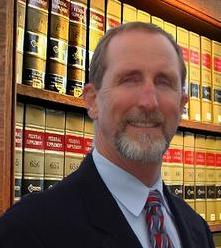Time to run for SLO County judge
July 3, 2019

Stew Jenkins
By STEW JENKINS
An engaged, effective and resilient San Luis Obispo County Bar Association should make a version of this announcement for its member early in every odd numbered year. Superior court judges are elected at the primary; or in a November run-off if no one candidate receives a majority. California moved up its primary; next year to March 3, 2020.
So, spring or summer this year, 2019, is the time a lawyer should start to run for judge.
In the wisdom of California’s constitutional founders, Superior Court judgeships are temporary six-year jobs. Close to the people, elected by voters in each county. The Governor has no constitutional role, other than to make temporary appointments on death or resignation.
But, when I think about the slightly undemocratic reaction that our colleagues on the bench have to the idea of lawyers running for judge at election time, it brings to mind this picture of musk ox in a rump-to-rum defensive circle.

Lawyers do file, campaign and often enough win election to a superior court seat. One who ran and prevailed against an incumbent swore me into the practice of law.
There are good reasons to run. Sometimes political connections induce a governor to mistakenly appoint someone to a vacancy without the qualities that make a good judge. And every experienced lawyer has appeared over time in front of one or another jurist and quietly concluded that she or he would do a better job than that particular judge weighing equities, ruling on evidence, assessing witnesses, and administering justice.
Candidates who win judgeships by campaigning among the people that they will serve lose biases and gain insights that serve them administering justice. Lawyers who run for judge, but don’t get elected, typically find the number and quality of their clients will sky rocket after the election.
Three San Luis Obispo County Superior Court seats are coming up for election in 2020: in alphabetical order these are the seats occupied by Rita C. Federman, Ginger E. Garrett, and Matthew Guerrero (an appointed-incumbent).
Legislative manipulation of the timing to file nomination papers for judge can catch the unwary off-guard. This cycle, lawyers running for superior court must file their Judicial Candidate Statements of Intent early: between Oct. 28, 2019 and Nov. 6, 2019. This is an eight-business-day window that will not be extended unless one of the two incumbents or the one appointed-incumbent fail to file. It is different than for any other elective office.
There is a filing fee of a little over $2,000. But this can be reduced by pulling “Petition in Lieu” papers on or after Sept. 12, 2019, to circulate and turn in with your Judicial Candidates Statement of Intent form on or before Nov. 6, 2019. Every signature will reduce that filing fee, and the very act of collecting those signatures will help cement your relationship with voters and your campaign volunteers.
The Canons of Judicial Ethics give you a clue to when you should start your campaign. There is a required course on the ethics of running for judicial office that you must take (and frankly that every lawyer should take) online. Lawyers and Judges get continuing education credit. Canon 5(b)(3) of the Code of Judicial Ethics mandates this course be finished (and this is the clue on when to start your campaign): “no earlier than one year before or no later than 60 days after either the filing of a declaration of intention by the candidate, the formation of a campaign committee, or the receipt of any campaign contribution, whichever is earliest. This requirement does not apply to judges who are unopposed for election and will not appear on the ballot.”
It is an enlightening course. The State Bar rules of professional conduct require lawyers who run for Judge to comply with the Canons of Judicial Ethics that apply to campaigns. You can log on to take the course here. You can also find more information online.
Any lawyer with 10 years continuous active State Bar membership should consider offering the community his or her knowledge, integrity, and professionalism by running for Superior Court Judge.






The comments below represent the opinion of the writer and do not represent the views or policies of CalCoastNews.com. Please address the Policies, events and arguments, not the person. Constructive debate is good; mockery, taunting, and name calling is not. Comment Guidelines